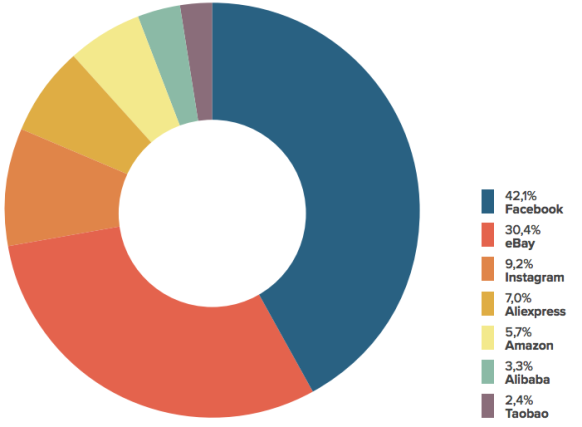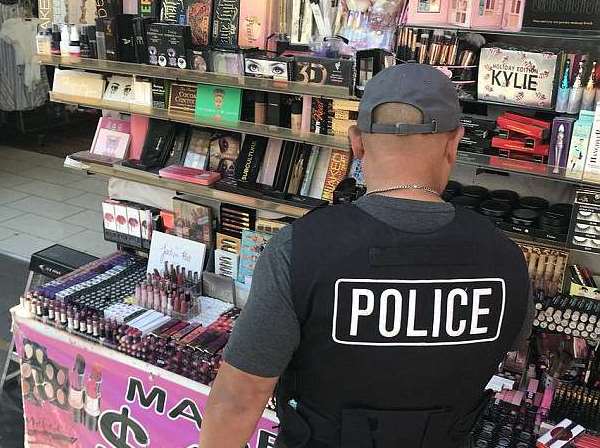Social media now accounts for more than 50 percent of all online counterfeit cosmetics sales, according to a new report.
The report, by Red Points, a leading copyright protection company, found that Facebook was the source of 41.1 percent of online infringement detections while Instagram was the source of 9.2 percent.
The report also found that 19.5 percent of online shoppers are buying fake cosmetics online by mistake and that around 50 percent of online shoppers think it is the brand owners’ responsibility to remove fake items from online platforms.
Red Points CEO Laura Urquizu says the cosmetics industry’s upheaval in recent years, “partly due to the popularity of digital marketing through social media channels”, has led to a growth in the illegal cosmetics market.

“Compared to any other industries, the report shows that the cosmetics sector has been the most affected by online brand infringements, with counterfeiters favouring social media platforms to sell fake items,” she says.
“What’s more, the resale of authentic cosmetics products on the so-called ‘grey market’ has also played an important role in further damaging the legitimate cosmetics industry worldwide.”
She says counterfeiting is a challenge that has always “plagued the cosmetics industry” but it has been amplified in recent years “due to the advent of social media” despite the work of online platforms such as Amazon, eBay and Facebook “to zero in on counterfeiters” with brands and law enforcement.
“Unless companies implement smart ways to address the issue head-on, counterfeiters will continue to exploit gaps in the system to spread out illegal cosmetics online.”
Red Points’ report follows two high-profile cosmetic counterfeiting cases – in February police found US$700,000 worth of counterfeit Kylie Cosmetics products in 21 locations throughout Los Angeles, and last month Fenty Beauty posted a warning about a website selling counterfeit versions of its brand.

